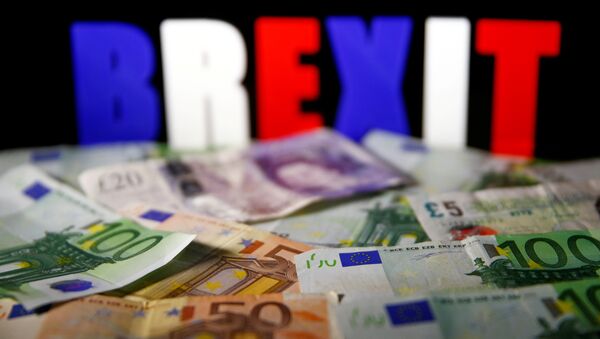Kristian Rouz – Despite the failing Brexit negotiations spooking investors, and globalist elites scaring market participants with the imminent economic collapse of Great Britain, the economy continues to fire on all cylinders. The UK’s GDP growth outpaced earlier predictions in the three months up to November, allowing the Bank of England (BOE) to continue normalizing its monetary policies in order to curb inflation.
The British economy grew a solid 0.5 percent during the period, according to a report from the National Institute of Economic and Social Research (NIESR). This after the UK’s economy accelerated in Q3 to 0.4 percent in a quarter-to-quarter comparison.
“GDP growth at 0.5 percent is somewhat higher than the economy’s speed limit,” Amit Kara of NIESR said.
In the three months up to November, the British economy was driven by the ongoing expansion in manufacturing, supported by the weaker pound. Despite the sterling trading at $1.34 – close to its pre-Brexit vote gauge of $1.41-$1.60 – it still provides enough accommodation to the nation’s foreign trade.
READ MORE: 'Breakthrough We Needed': UK, EU Brexit Talks Move Forward
However, the UK’s trade deficit widened during the period, mainly, due to the expansion in commodity and consumer goods imports. The UK’s exports to non-EU countries posted further gains, and, excluding the EU, Britain’s trade deficit narrowed by £3 billion.
Export activity improved in every region of the UK, according to a separate report from Her Majesty’s Revenue and Customs (HMRC). This deals a solid blow to the agenda of globalist-minded separatist forces in Scotland, and the multiculturalist elitists in London – stiff opponents of Brexit.
We currently see Q4 #UK #GDP #growth at 0.4% q/q in Q4, same as in Q3. Much will depend on strength of #services sectors & #consumer spending over Christmas period https://t.co/NT5a2YB865
— Howard Archer (@HowardArcherUK) 8 декабря 2017 г.
England’s exports in the September-November period rose by 14 percent, whilst Scotland’s exports surged by 19.9 percent. Pro-“Remain” Scotland is actually benefitting from Brexit more than provincial England – which overwhelmingly voted “Leave" back in June 2016.
This also puts the BOE in a favorable position to introduce further interest rate hikes.
“If, as we expect, the economy continues to expand around this pace and inflation remains elevated, there is a case for the Bank of England to gradually raise the policy rate to stop the economy from overheating,” NIESR’s Kara said.
The UK’s trade deficit during the period was driven by imports from the EU, supporting the UKIP and Tory and Unionist leanings toward a “hard Brexit.” The UK-EU trade deficit widened by £1.9 billion, providing further evidence trade relationships with the bloc has long stopped benefitting the British economy and fiscal standing.
The UK’s transport equipment production is the main driving force behind the manufacturing renaissance, adding 9.3 percent in the period. The aerospace segment alone surged 11.5 percent.
“While manufacturing was relatively subdued overall in October despite record production of cars destined for export, the longer-term picture is one of strong growth,” Kate Davies of the ONS said.
Meanwhile, the British economy’s main driving force is the services sector, which has expanded modestly. Economists expect a robust acceleration in domestic consumption this month due to the Christmas holiday shopping.
Overall, the UK’s economy has been coherently defying the gloomy Brexit-related forecasts for almost 18 months now. The most recent numbers are poised to provide further encouragement to the “hard Brexit” faction within the Conservative and Unionist government, rendering Prime Minister Theresa May much less of an “appeaser” to the EU than she’s appeared to be in recent weeks.





